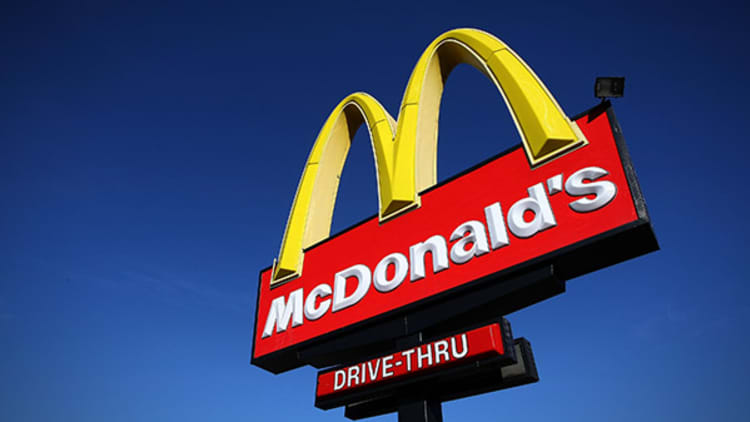A Canadian father of three is suing McDonald's for illegally promoting Happy Meals to children, alleging that the company is breaking laws in Quebec that ban most advertising to those under 13.
Antonio Bramante has three young children and goes to a McDonald's restaurant at least every two weeks at their encouragement, according to court documents filed last week. He is seeking compensation from the chain for purchases made over the past five years and wants to stop the company from promoting toys and happy meals to children in-store.
His law suit states that the toys that come with Happy Meals are marketed with the launch of children's movies and are often part of a series, prompting his family to return to the restaurant to complete the set. The court documents, translated from their original French, also state that toys are displayed in stands at the child's eye level, which Bramante's attorney Joey Zukran claims break laws that are part of Quebec's Consumer Protection Act.
A spokesperson for McDonald's Canada told CNBC by email that the company had received the ruling and will examine it carefully. "We are aware of our obligations under Quebec's advertising laws and reiterate that we do not believe this class action has merit. We are proud of our long-standing relationship with Quebecers and their families, who have been choosing to enjoy McDonald's for more than 45 years," the spokesperson added.
Advertising to children under 13 has been banned in Quebec since the 1970s with three exceptions: advertising in children's magazines, advertising children's entertainment events and advertising via store windows, displays, containers, packaging or labels.
Zukran, an attorney at LPC Avocat, told CNBC by phone that McDonald's toy displays are not covered by this exception, with the judgment stating that the company operates restaurants rather than stores. Even if they are considered stores, Zukran said, advertising must not "directly incite a child to buy goods or services," according to the Consumer Protection Act.
Zukran claims that his firm has had a "huge" response from other consumers, as anyone who has bought a Happy Meal in Quebec since November 2013 can request to be part of the action. He would not give a number but claims that the website crashed due to people's interest.
He pointed to the long-running "McLibel" case of the 1980s and 1990s in which McDonald's sued activists who were part of the London Greenpeace group. They had produced a leaflet called "What's wrong with McDonald's — everything they don't want you to know." Most of the claims in the leaflet were rejected by the judge, Justice Bell, but he decided that the advertising from McDonald's had exploited children, a blow to the fast-food chain.

"The main reaction we're receiving here in Canada is, well parents could just say 'no'," Zukran said. "But in the British case Justice Bell actually said, you know, the advertising is intentionally made to pressure children to pressure their parent."
"We are not attacking the nutritional value of Happy Meals, what we are attacking here is the advertising illegally directed to children under 13," Zukran added.
In February, McDonald's Canada said it would meet the company's new menu goals by 2022. For example, 50 percent of Happy Meal bundles will contain 10 percent fat or less, and 600 calories or less. A press release also stated that it "already meets local advertising pledges" and is a founding member of the Canadian Children's Food and Beverage Advertising Initiative.

